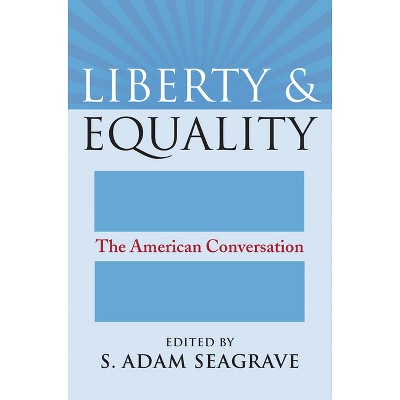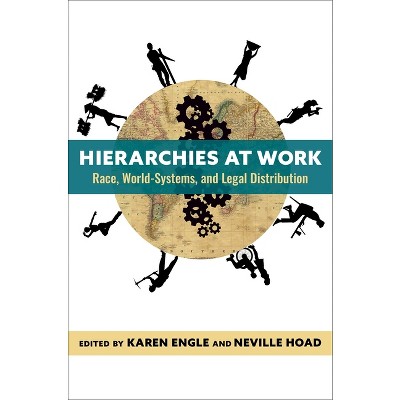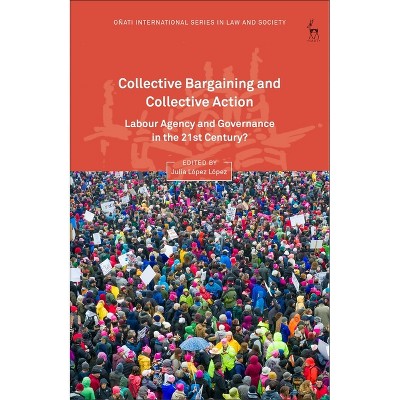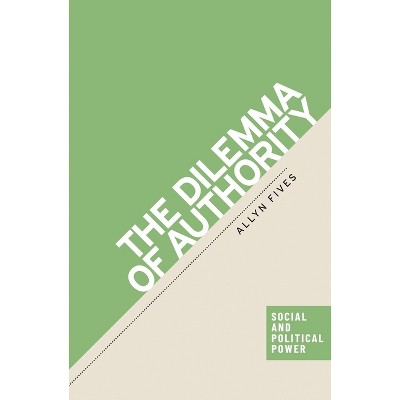Sponsored

The Prosperity Agenda - by Nancy Soderberg & Brian Katulis (Hardcover)
In Stock
Sponsored
About this item
Highlights
- Following the devastating 2005 earthquake in Pakistan, the Bush administration pledged more than $500 million for earthquake relief and sent American helicopters and soldiers to help.
- About the Author: Nancy Soderberg has served as a high-ranking White House National Security Adviser and as a U.S. Ambassador to the United Nations.
- 272 Pages
- Political Science, International Relations
Description
About the Book
The Bush administration's singular pursuit of the so-called Freedom Agenda has undermined America's security interests around the world, according to the authors, who reveal how to make America safer by regaining global goodwill and having a greater positive effect on humankind.Book Synopsis
Following the devastating 2005 earthquake in Pakistan, the Bush administration pledged more than $500 million for earthquake relief and sent American helicopters and soldiers to help. Immediately afterward, polls showed that the number of Pakistanis with a favorable opinion of the United States had doubled to more than 46 percent. The Prosperity Agenda argues that this may be the best foreign policy moment of the entire Bush administration-at the cost of what we spend in Iraq every day--and should become a model for future action. In this provocative, ingenious book, Soderberg and Katulis make one of the most controversial arguments that foreign policy circles have seen in years: no more putting all our eggs in the basket of promoting democracy or market reforms, or even diplomacy, sanctions, or cash handouts to faltering governments. Instead, they argue, we should go right to the citizens of troubled nations and give them what they need most. People in the Congo, Iraq, Pakistan, and North Korea all have the same concerns, and the right to vote is far from the top of the list. They need freedom from war, good food and shelter, basic health care, and the reasonable hope that tomorrow will be better. It's not only the right thing to do; it's likely to do more for American interests than the policies we've been relying on for years. Why have seven years of President Bush's "freedom agenda" failed to achieve freedom or democracy in Iraq, Afghanistan, or anywhere else? When democracy starts to sound like a code word for advancing U.S. interests, it backfires. Latin America provides an excellent example of why freedom's march has stalled, in large part due to quality-of-life issues. A 2004 survey showed that a majority of people in Latin America would rather have a government that provided economic gains than a democracy.The Prosperity Agenda embraces a new and compelling strategy for overcoming that problem and dealing with the world. Giving money, weapons, and loans with lots of strings attached doesn't do it. But handing out vaccines, disaster relief, and $100 laptops does. Working to improve the basic lives of people will, in the end, help defeat terrorism, increase America's leverage against its enemies, weaken dictatorships, and, most importantly, save the lives of millions.From the Back Cover
Praise for Nancy Soderberg's
The Superpower Myth
"A sensible, hard-headed, realistic alternative to the excesses of America's Iraq-era dealings with the world."
--James Fallows, National Correspondent, The Atlantic Monthly
"One of the greatest strengths of Soderberg's book is her insider's account of many of the seminal events of the 1990s. Soderberg [gives us] a bird's-eye view of such critical issues as intervention in the Balkans and Haiti and U.S. efforts to combat al Qaeda and hunt down Osama bin Laden."
--Charles A. Kupchan, The Washington Post Book World
"Does America Need a Foreign Policy? by Henry Kissinger, The Choice by Zbigniew Brzezinski, and The Superpower Myth by Nancy Soderberg--all of these authors have firsthand experience in government, and it shows. The Superpower Myth, which doubles as a memoir of Soderberg's years in the Clinton administration, is a history told from inside meeting rooms, full of detail about how government bureaucracies actually function--and why sometimes they don't."
--Jonathan D. Tepperman, The New York Times Book Review
Review Quotes
Praise for Nancy Soderberg's The Superpower Myth
"A sensible, hard-headed, realistic alternative to the excesses of America's Iraq-era dealings with the world." -James Fallows, National Correspondent, The Atlantic Monthly
"One of the greatest strengths of Soderberg's book is her insider's account of many of the seminal events of the 1990s. Soderberg [gives us] a bird's-eye view of such critical issues as intervention in the Balkans and Haiti and U.S. efforts to combat al Qaeda and hunt down Osama bin Laden." --Charles A. Kupchan, The Washington Post Book World
"Does America Need a Foreign Policy? by Henry Kissinger, The Choice by Zbigniew Brzezinski, and The Superpower Myth by Nancy Soderberg--all of these authors have firsthand experience in government, and it shows. The Superpower Myth, which doubles as a memoir of Soderberg's years in the Clinton administration, is a history told from inside meeting rooms, full of detail about how government bureaucracies actually function-and why sometimes they don't." --Jonathan D. Tepperman, The New York Times Book Review
About the Author
Nancy Soderberg has served as a high-ranking White House National Security Adviser and as a U.S. Ambassador to the United Nations. She is the author of The Superpower Myth, and her commentary has appeared in publications including the Los Angeles Times, the New York Times, and the American Prospect. She has appeared on The Newshour with Jim Lehrer, The Daily Show, Crossfire, and many other programs.
Brian Katulis is a Senior Fellow at the Center for American Progress, where his work focuses on U.S. national security. He has lived and worked in more than a dozen countries around the world, and his commentary has appeared in the Los Angeles Times, the Washington Post, and the Boston Globe, among other publications. He has appeared on Hardball with Chris Matthews, CNN, Fox News, and the BBC.
Shipping details
Return details
Trending Non-Fiction

















